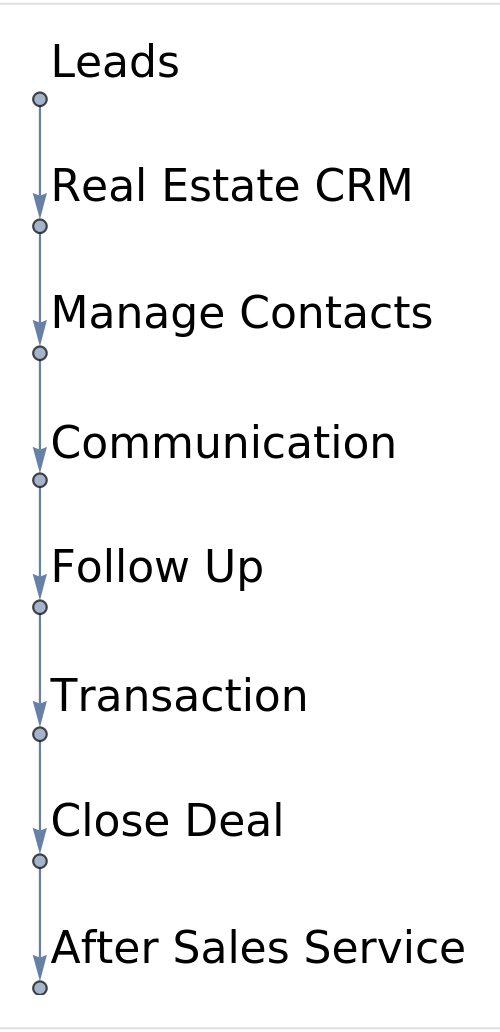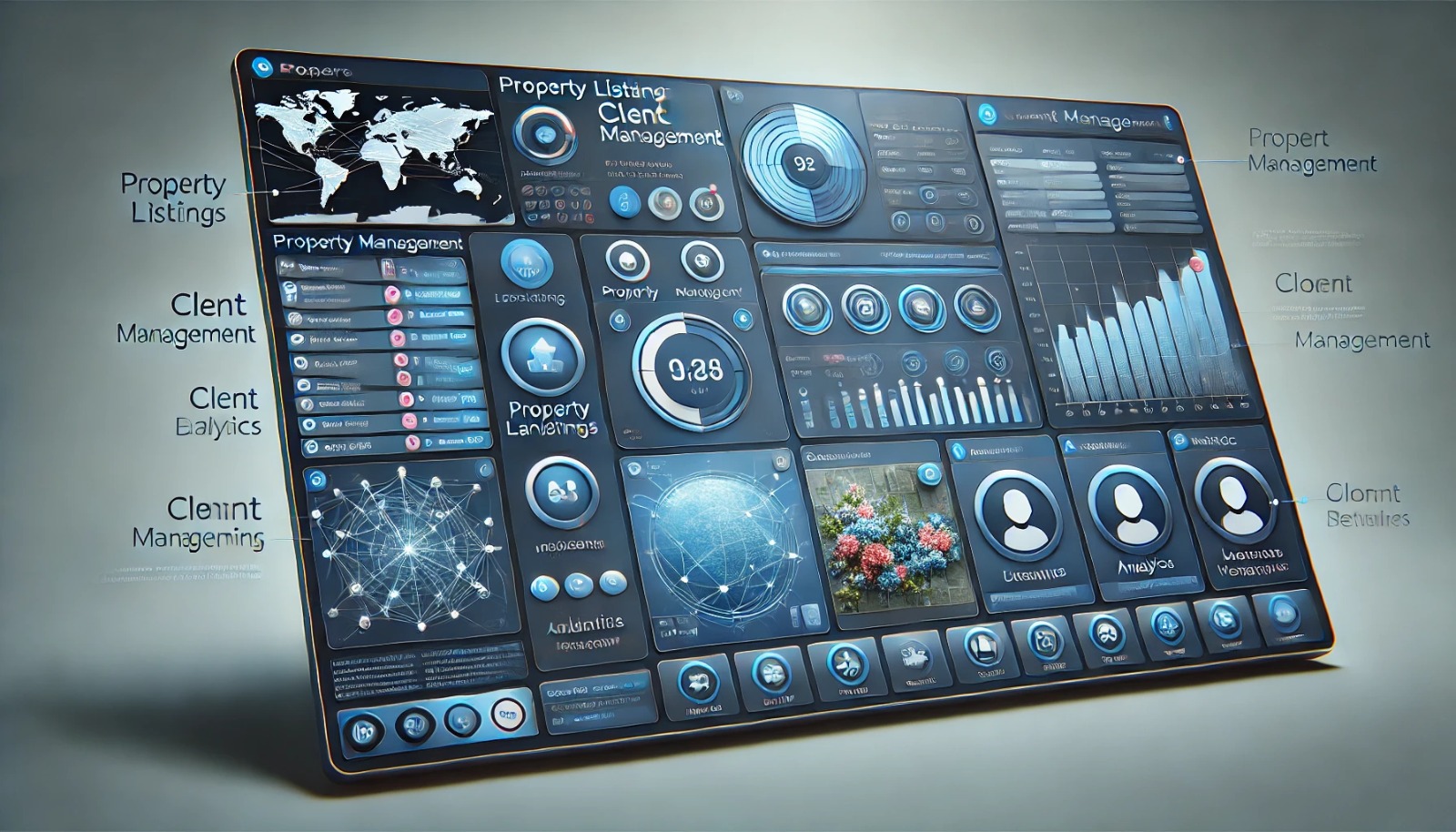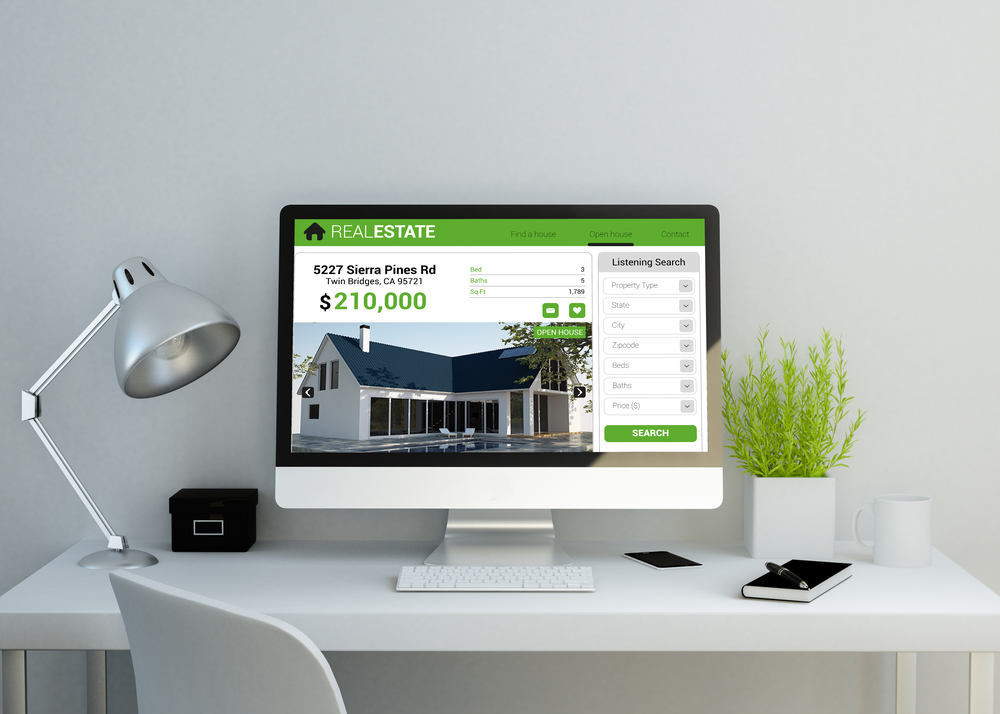The business landscape has witnessed a remarkable shift towards a customer-centric model. Among various sectors, real estate is one industry where Customer Relationship Management (CRM) plays an instrumental role. But the question that comes to mind is – what exactly is CRM in real estate, and why does it hold such a significant position? This comprehensive guide aims to provide an in-depth understanding of CRM in the real estate sector.
Understanding Real Estate CRM
Real Estate CRM is a specialized tool or system that enables real estate agents, brokers, and firms to manage their client interactions, property information, and transactions in one unified platform. At its core, CRM is an online database that stores both corporate and personal information. This centralization of data simplifies the process of managing contracts, complying with transaction deadlines, and ultimately leading to more successful sales.
In simpler terms, CRM is the ‘brain’ of a real estate business, storing vital information about buyers, sellers, brokers, developers, and more. Just like a well-functioning brain leads to a healthier body, a robust CRM system results in more efficient and streamlined business operations. Check this Hubspot post for more general information on Real Estate CRM.

The Functioning of CRM in Real Estate

In the vast ecosystem of the real estate industry, CRM serves as the linchpin, managing all the cogs of the sales wheel.
CRM as an Online Database
CRM software emerges as a one-stop-shop for all property listings, client information, and transaction records. It empowers real estate agents with the ability to swiftly access any necessary information, ensuring a seamless transaction process.
Let’s consider an example. Imagine you’re a real estate agent, and you receive a new lead from a potential homebuyer. With a CRM software, you can quickly enter this lead into the system, add any pertinent notes such as their budget or preferred neighborhoods, and initiate the process of moving this lead through the sales funnel.
CRM as a Central Hub for Transactions
CRM tools offer a streamlined, almost error-proof system that initiates contracts and ensures transaction deadlines are met, guaranteeing that all parties are in sync. This level of coordination proves particularly critical when multiple stakeholders like buyers, sellers, financial institutions, and brokers are involved in a transaction.
The Importance of Communication in CRM
Effective communication forms the backbone of any successful client relationship. CRM tools in real estate facilitate this by managing all channels of communication, be it email, social media, or direct messaging. This feature ensures no conversation falls through the cracks and fosters a robust relationship with clients.
Key Players in Real Estate CRM
Several key players come into play in the CRM ecosystem of real estate.
Brokers utilize CRM systems to streamline their operations, keep tabs on market trends, and ensure seamless communication with both agents and clients.
Developers can harness the power of CRM to monitor project progress, manage contracts, and maintain a comprehensive record of their properties.
Financial institutions often form a part of the CRM infrastructure to facilitate hassle-free transactions, providing clients with a one-stop solution for all their real estate needs.
The Importance of CRM Software in Real Estate
With the rapid digitization of industries, CRM software has emerged as a critical tool in real estate, aiding lead generation and marketing. A robust CRM system allows agents to keep track of potential leads, guide them through the sales funnel, and ultimately convert these leads into successful deals.
Moreover, CRM software serves as a powerful marketing tool. It empowers real estate businesses to craft targeted marketing campaigns based on customer data and insights, leading to more effective and personalized marketing strategies.
Here are some key reasons why CRM software holds immense importance in the real estate industry:
-
Lead Generation and Management: One of the primary benefits of CRM software is its ability to aid lead generation and management. Real estate agents can capture leads from various sources, such as websites, social media, and referrals, and input them into the CRM system. The software helps track and organize leads, ensuring that no opportunity is missed. By having a centralized repository of leads, agents can efficiently nurture and guide them through the sales funnel, increasing the likelihood of successful conversions.
-
Efficient Sales Funnel Management: CRM software provides real estate professionals with a systematic approach to managing the sales funnel. It allows agents to segment leads based on their preferences, interests, and stage in the buying process. With the help of automation features, agents can set up targeted follow-up campaigns, send personalized messages, and schedule reminders for key interactions. This level of organization and automation ensures that no leads fall through the cracks and that every opportunity is maximized.
-
Personalized and Effective Marketing Campaigns: CRM software serves as a powerful marketing tool, enabling real estate businesses to create personalized and effective marketing campaigns. By leveraging customer data and insights stored in the CRM system, agents can tailor their marketing messages to specific target audiences. They can craft personalized emails, targeted social media advertisements, and relevant content that resonates with potential buyers. This approach leads to higher engagement, increased brand awareness, and ultimately, more successful conversions.
-
Customer Relationship Management: As the name suggests, CRM software places a strong emphasis on managing customer relationships. It allows real estate professionals to store and access crucial customer information, including contact details, communication history, preferences, and transaction records. This holistic view of each customer enables agents to provide personalized and attentive customer service. By understanding client preferences, agents can anticipate their needs, proactively address concerns, and foster long-term loyalty. CRM software also facilitates effective communication with clients through various channels, ensuring timely responses and enhanced customer satisfaction.
-
Data-driven Decision Making: CRM software provides valuable insights and analytics that drive data-driven decision making. Real estate professionals can access reports and dashboards that showcase key performance metrics, such as lead conversion rates, sales performance, and marketing ROI. These insights allow agents to identify strengths, weaknesses, and areas for improvement. With a clear understanding of the data, agents can make informed decisions regarding marketing strategies, resource allocation, and business growth initiatives.
-
Improved Collaboration and Team Efficiency: CRM software fosters collaboration and enhances team efficiency within real estate organizations. By centralizing client and property data, agents and teams can easily access and share information. This facilitates seamless communication, collaboration, and coordination among team members, ensuring that everyone is on the same page. CRM software also allows for task assignment, scheduling, and progress tracking, enabling teams to work together efficiently towards common goals.
The Diverse Roles of CRM in the Real Estate Sector
In the real estate sector, CRM plays a multifaceted role, extending beyond mere transaction management. Let’s explore some of its key roles: 1. Realtors and Real Estate Agents: CRM software provides realtors and agents with a centralized platform to manage their clients, properties, and transactions. They can store client details, preferences, and contact history, enabling personalized interactions and targeted marketing campaigns. Additionally, CRM helps realtors track and manage property listings, schedule showings, and stay on top of important tasks and deadlines.
1. Realtors and Real Estate Agents: CRM software provides realtors and agents with a centralized platform to manage their clients, properties, and transactions. They can store client details, preferences, and contact history, enabling personalized interactions and targeted marketing campaigns. Additionally, CRM helps realtors track and manage property listings, schedule showings, and stay on top of important tasks and deadlines.
2. Real Estate Administration: CRM tools assist in streamlining administrative tasks by offering features like document management, contract generation, and automated workflows. These functionalities help reduce paperwork, increase efficiency, and ensure compliance with legal and regulatory requirements.
3. Property and Client Marketing: CRM systems enable real estate professionals to create targeted marketing campaigns based on client data. By segmenting clients and analyzing their preferences and buying behaviors, agents can tailor their marketing efforts, resulting in higher conversion rates and customer satisfaction. CRM also facilitates email marketing, social media integration, and lead nurturing campaigns to engage potential buyers and sellers.
4. Real Estate Sales and Closings: CRM software streamlines the sales process by tracking leads, managing appointments, and coordinating with various stakeholders involved in the transaction. It helps agents stay organized and on top of important milestones, ensuring smooth and successful closings.
5. Real Estate Customer Service and Support: Providing excellent customer service is crucial for long-term success in real estate. CRM systems enable agents to track customer inquiries, manage service requests, and ensure timely responses. This ensures that clients receive the support they need, fostering strong relationships and positive referrals.
6. Storing Property Information: CRM serves as a repository for property information, including details such as property characteristics, history, documents, and media files. This centralized storage allows real estate professionals to access property data quickly, enhancing efficiency in property management and marketing activities.
7. Storing Information about Interested Parties: CRM software allows agents to maintain a comprehensive database of interested parties, including potential buyers, sellers, investors, and partners. Agents can track their preferences, communication history, and transaction details, ensuring personalized and targeted interactions.
8. Managing Property Leads, Deals, and Sales: CRM systems streamline lead management by capturing and tracking leads from various sources, such as websites, referrals, and marketing campaigns. Real estate professionals can assign leads to agents, track their progress through the sales pipeline, and analyze conversion rates. CRM also assists in managing deals and sales, tracking negotiations, offers, and contracts.
9. Building Healthy Relationships, Communications, and Interactions: CRM fosters healthy relationships with clients by enabling personalized communication, timely follow-ups, and proactive engagement. Agents can access client communication history, preferences, and purchase history, allowing for more meaningful interactions and enhanced customer satisfaction.
10. Integrating with other systems, stakeholders, and third parties: CRM systems often offer integrations with other essential tools, such as email platforms, accounting software, property listing portals, and customer support systems. This integration streamlines workflows, reduces data duplication, and enhances collaboration between different stakeholders involved in real estate transactions.
CRM Software for Real Estate: Types and Features
In the realm of real estate CRM, various types of software are available, catering to different needs and scales of operations. Let’s explore in detail some common types and features of CRM software for real estate.
Types of CRM Software for Real Estate:
1. Individual Agent CRM:
Designed for solo real estate agents or small teams, these CRM solutions offer essential features tailored to the needs of individual agents. They provide functionalities such as contact management, lead tracking, and communication tools. Individual agent CRM software allows real estate professionals to efficiently manage their client database, track leads, and maintain effective communication with prospects and clients. These solutions often come with user-friendly interfaces and are cost-effective for individual agents or small teams.
2. Brokerage CRM:
Tailored for real estate brokerages and agencies, these CRM systems are designed to handle the unique requirements of managing a team of agents and multiple listings. Brokerage CRM software provides advanced functionalities beyond individual agent CRM, including team management features such as lead assignment and distribution, transaction tracking, commission management, and reporting capabilities. These solutions enable brokerages to streamline their operations, improve team collaboration, and gain insights into their business performance.
3. Enterprise CRM:
Geared towards large real estate companies with multiple offices and complex operations, enterprise CRM software offers robust capabilities to handle the scale and complexity of their business. These solutions provide advanced features such as multi-office support, automation, customizations, and integrations with other enterprise systems such as accounting and project management tools. Enterprise CRM software empowers real estate companies to centralize their operations, standardize processes, and enhance collaboration across different departments and locations.
Features of a Real Estate CRM Tool:
Contact Management: A fundamental feature of any real estate CRM tool is efficient contact management. It allows real estate professionals to manage and organize client and lead data effectively. This includes storing contact details, preferences, communication history, and notes. With robust contact management features, agents can easily access and update client information, ensuring personalized and targeted communication.
Property Management: Another important feature of real estate CRM software is property management. This functionality enables agents to store and manage essential property information such as property details, documents, media files, and listing history. Agents can easily access property information, track property status, and collaborate with clients and team members.
Lead Tracking and Nurturing: CRM software for real estate offers lead tracking and nurturing capabilities to capture and track leads throughout the sales pipeline. Agents can efficiently capture leads, assign them to the appropriate team members, and nurture them with automated follow-ups and reminders. This helps agents stay organized, prioritize leads, and increase the chances of converting leads into successful deals.
Transaction Management: Real estate transactions involve various tasks, documents, and deadlines. CRM software simplifies transaction management by providing features such as contract generation, document management, task tracking, and deadline reminders. Agents can stay on top of important transaction milestones and ensure a smooth and timely closing process.
Marketing Automation: Effective marketing is crucial in the real estate industry. CRM software offers marketing automation capabilities, allowing agents to automate marketing activities such as email campaigns, social media posting, and lead nurturing. Agents can create targeted marketing campaigns, engage potential buyers and sellers, and track the effectiveness of their marketing efforts.
Reporting and Analytics: Real estate CRM tools provide reporting and analytics features to generate insightful reports and gain valuable insights into sales performance, lead conversion rates, marketing effectiveness, and agent productivity. Agents can analyze key metrics, identify trends, and make data-driven decisions to optimize their business strategies.
By leveraging the features of CRM software designed specifically for the real estate industry, agents and brokerages can enhance their productivity, streamline operations, and build stronger relationships with clients.
Top Real Estate CRM Software
When choosing a CRM software for real estate, it’s essential to consider factors such as ease of use, scalability, integrations, and customer support. Here are some top-rated CRM tools in the real estate industry:
Note: The following table provides an overview of popular CRM software for real estate, their key features, and pricing.
| CRM Software | Key Features | Pricing |
|---|---|---|
| LeadSquared | – Contact management – Lead tracking – Transaction management – Email marketing automation |
Starts at $X/month |
| Zoho CRM | – Sales and marketing automation – Contact management – Helpdesk and customer support – Analytics |
Starts at $Y/month |
| Salesmate | – Contact management – Sales pipeline management – Email marketing – Sales automation |
Starts at $Z/month |
| Freshsales | – Salesforce automation – Lead management – Email tracking – Analytics |
Starts at $W/month |
| Bigin by Zoho CRM | – Pipeline-centric CRM – Ease of use – Spreadsheets-like simplicity – Ideal for small businesses |
Starts at $V/month |
| Dynamo | – Investor relationship management – Compliance document submissions – Account statements |
Custom pricing available |
| Kunversion+ | – Lead generation and management – Campaign management – Real estate-specific CRM |
Custom pricing available |
| PlanPlus Online | – Franklin Covey business planning methodology – Time and customer management |
Starts at $U/month |
| Five9 | – Cloud contact center solution – Inbound, outbound, and omnichannel contact handling |
Custom pricing available |
| GreenRope | – CRM with integrated marketing automation – Email marketing – Sales and project management |
Starts at $T/month |
| REthink Real Estate CRM | – CRM solution designed for the real estate industry – Buying, selling, leasing, and property management |
Custom pricing available |
| Salesforce Sales Cloud | – Intelligent sales automation – Lead and opportunity management – Analytics |
Custom pricing available |
| Referral Maker CRM | – Relational marketing model – Lead generation through referrals and repeat business |
Starts at $S/month |
| Kommo | – Multifunctional CRM – Personalized chatbot interactions – Messenger platform support |
Starts at $R/month |
| Salesforce Service Cloud | – Cloud-based customer service management – Case and contact management – Omnichannel support |
Custom pricing available |
| Pipedrive | – Sales CRM and pipeline management – Activity-based selling methodology – Sales process automation |
Starts at $P/month |
| Nimble | – Sales force automation and social CRM – Contact and interaction management – Email tracking |
Starts at $O/month |
| Capsule | – Cloud-based CRM application – Contact and opportunity management – Sales pipeline tracking |
Starts at $N/month |
| Less Annoying CRM | – Easy-to-use CRM for small businesses – Contact and project management – Customizable dashboard |
$M/month per user |
| Really Simple Systems CRM | – Cloud CRM for small and midsize organizations – Sales, marketing, and service tools |
Starts at $L/month |
Please note that the pricing mentioned above is for illustrative purposes only and may vary based on factors like package options, user count, and additional features.
The Role of CRM in the Growth of Property Business
Implementing a CRM system can significantly contribute to the growth of a property business. By providing an organized platform for managing clients, transactions, and marketing efforts, CRM enhances efficiency and customer satisfaction. Here are a few ways CRM software fosters business growth:
1. Streamlined Operations: CRM centralizes information, automates tasks, and streamlines workflows, enabling real estate professionals to focus more on core business activities, such as client engagement and deal closures.
2. Enhanced Customer Experience: CRM empowers agents to deliver personalized experiences by leveraging client data, preferences, and purchase history. This leads to stronger client relationships, increased referrals, and customer loyalty.
3. Effective Lead Generation: CRM tools capture and track leads from various sources, ensuring that no opportunity is missed. Agents can nurture leads systematically, increasing the chances of converting them into successful deals.
4. Targeted Marketing Campaigns: CRM systems provide valuable insights into client preferences and behaviors. This data enables real estate businesses to craft targeted marketing campaigns, resulting in higher engagement and conversion rates.
5. Improved Collaboration: CRM facilitates collaboration among team members and stakeholders involved in the sales process, fostering better communication, coordination, and accountability.
6. Data-Driven Decision Making: CRM software offers reporting and analytics capabilities, providing real estate professionals with actionable insights into sales performance, lead conversion rates, marketing effectiveness, and more. Data-driven decision making leads to better strategies and increased profitability.
CRM has become an indispensable tool in the real estate sector, transforming the way agents, brokers, and firms manage their relationships, transactions, and marketing efforts. By centralizing data, streamlining operations, and facilitating personalized interactions, CRM software enables real estate professionals to achieve higher efficiency, customer satisfaction, and business growth. Embracing CRM is not just a trend but a strategic move towards building a thriving real estate business in today’s competitive market. So, leverage the power of CRM and unlock the true potential of your real estate endeavors!



















